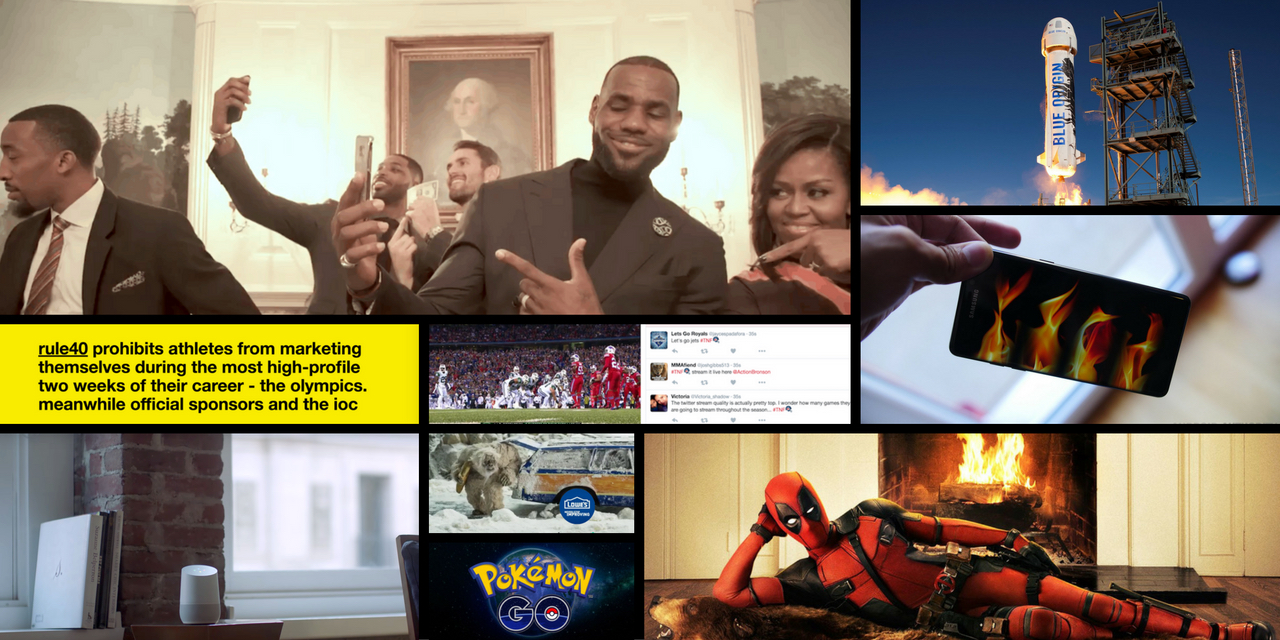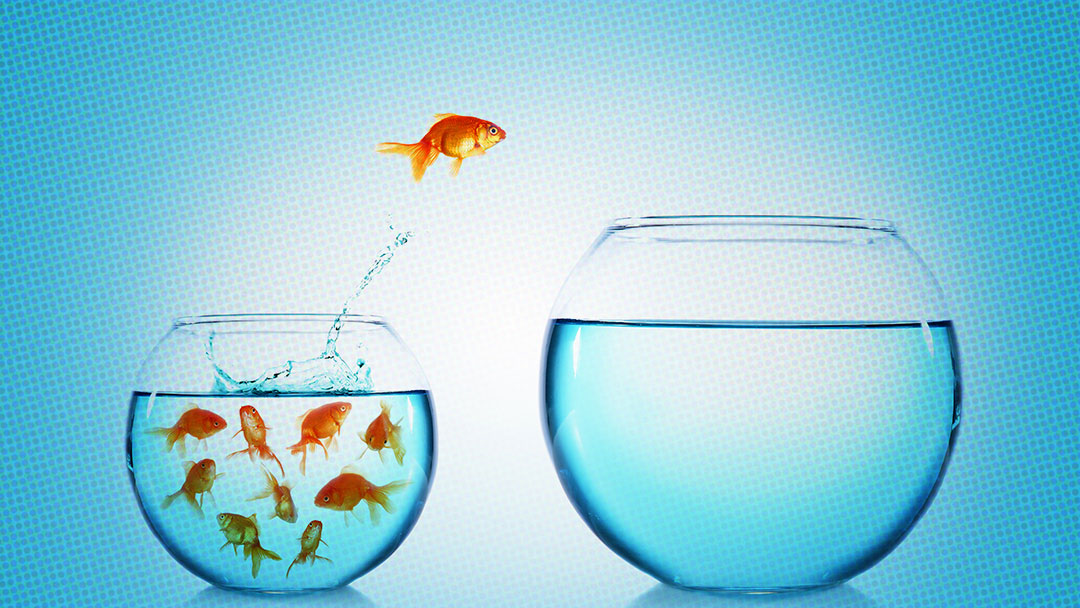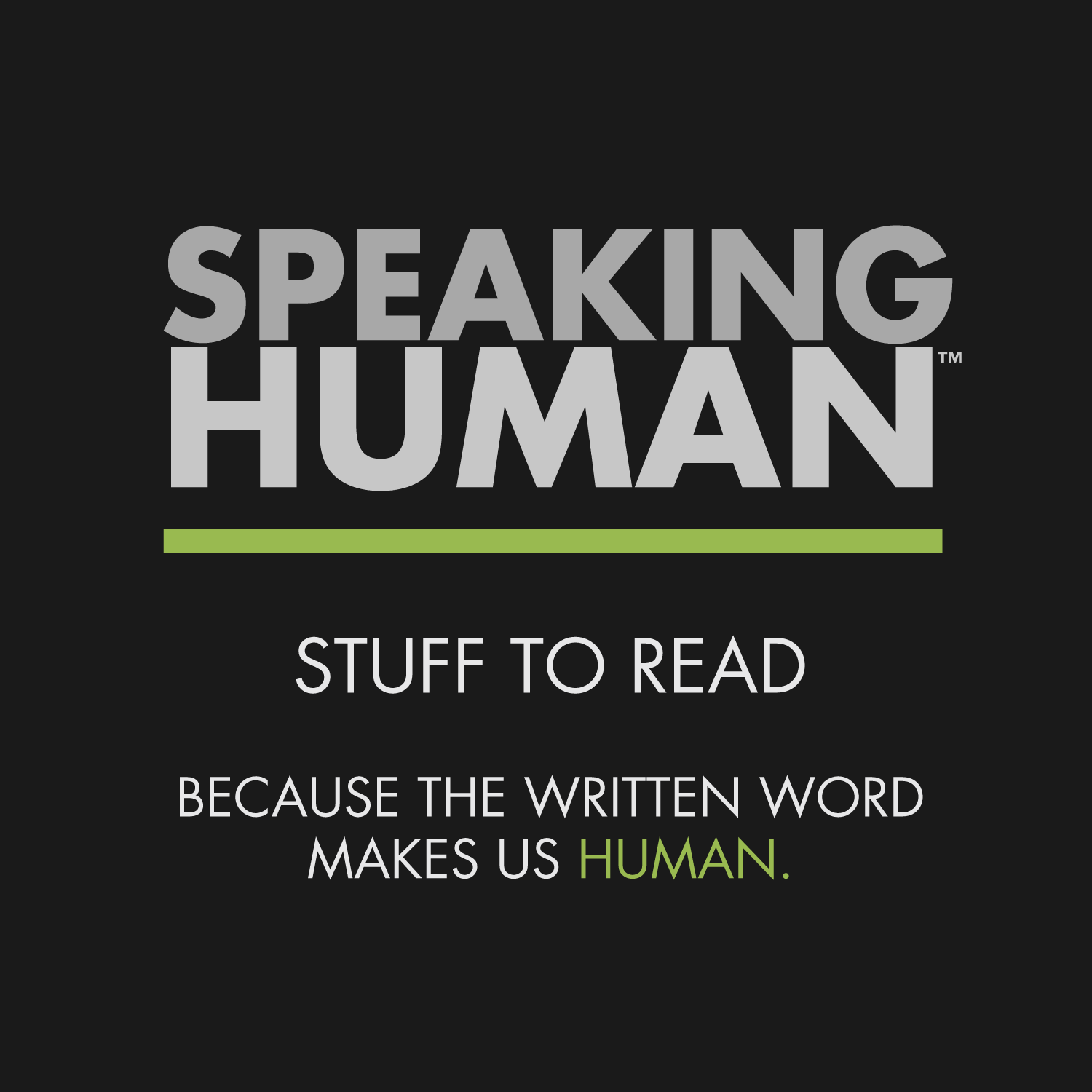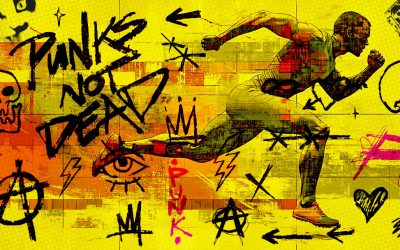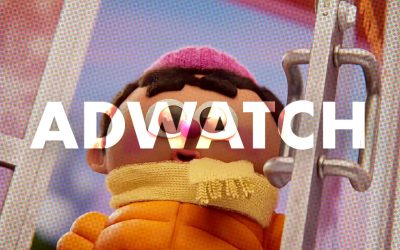Most Awesome Marketing Efforts & Trends Of 2016
We started the Awesome Awards way back in 2014 as a way to honor not just the best marketing, but the standout marketing efforts, campaigns, stories, and trends that—for better or worse—hit us on a human level, made an impact, and defined the year.
Unlike most marketing awards, the Awesome Awards don’t come with preset categories. There’s no “best marketing campaign” or “best brand video”. Instead, the awards change year to year based on what’s happening in the industry and in American culture. These are unique, customized awards that defy simple categorization.
Check out past Awesome Award recipients:
2016 Awesome Award Winners
On this recent episode of the Speaking Human podcast, we presented our Awesome Award winners for 2016. Here’s the official list of winners and a quick summary of why each one nabbed its specific award…
The Best Campaign to End an Absurd Power Play by an International Sporting Event Award
Winner: The #Rule40 Campaign and Website
This award goes to the #Rule40 campaign and website, which called out the greed and ridiculousness of the Olympic Committee’s Rule 40—which prohibits athletes from mentioning non-official-sponsor brands who support them during the Olympics; and prohibits non-sponsor brands from even mentioning the Olympics and other keywords on social media.
The #Rule40 campaign called attention to the negative impact of this rule in a smart and clever way—by developing generic language to help athletes and brands get around the rule and shine a spotlight on just how stupid it is. For example, instead of saying Olympics they say “generic worldwide quadrennial sporting event”. It was a great campaign that will hopefully bring about some much-needed change.
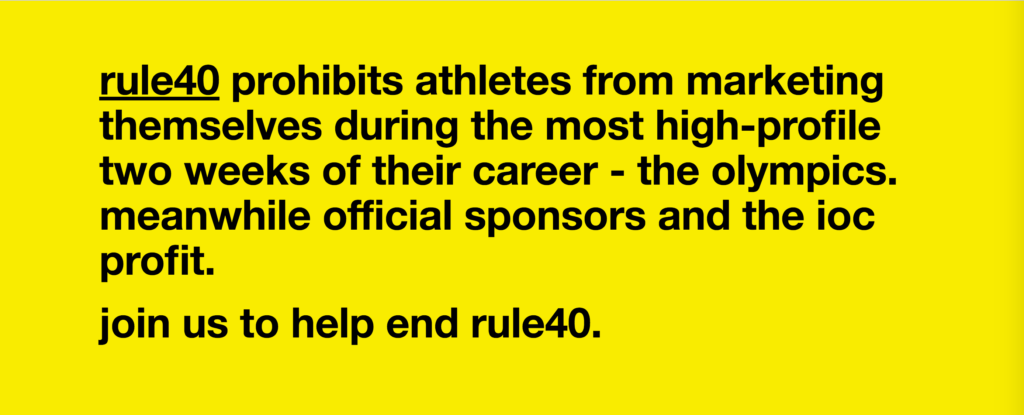
The Reinvention and Proliferation of Social Order Award
Winner: Social Media
Social media has gone through some major shifts this year. Because social is so fluid, sometimes it’s easy to overlook the more interesting progress. Instagram, for example, accomplished a lot this year. It now has over 500 million users and more than 500,000 advertisers. It also made some much-needed changes to allow users to have multiple accounts, making it easier for businesses to manage their accounts.
Additionally, Facebook Live launched this year and people are using it (like this lady for example). While Twitter has had a lot of mixed press this year, they did some cool things with live streaming—integrating Periscope’s features directly into the channel and beginning TV live streaming by showing NFL games. And then there’s Snapchat, a network quickly working its way into the big leagues with innovative efforts like this. Last but not least, Microsoft purchased LinkedIn for $26 billion.
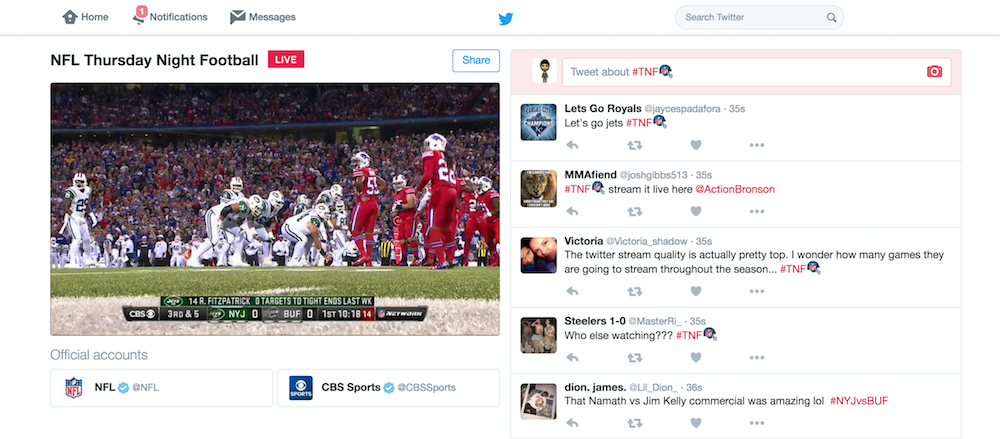
The Blink-and-You’ll-Miss-It Massive Mobile Trend Award &
The Craze That Humans Forgot Award
(Double) Winner: Pokemon Go
It was a beautiful wave of hysteria. There was a solid month where no one was talking about anything but Pokemon Go. It was on the nightly news. Articles were telling us it was going to revolutionize gaming, mobile apps, and marketing. Everyone was playing it. We even devoted an entire podcast to it. Alas, like most trends, Pokemon Go soared to unprecedented heights only to come crashing back down to earth.
But while the game’s five minutes of fame may have been short-lived, they were certainly intense. Pokemon Go consumed, swallowed and pooped out July 2016 in impressive fashion. Ten years from now when we’re watching “I love the 2010s” on VH1, Pokemon GO will have a really strong five minutes devoted to it.

The Social Sharing App That Left Us Too Soon (But Isn’t Completely Going Away) Award
Winner: Vine
At this point, we’ve seen a lot of social networks rise and fall, come and go. And that’s what happened to Vine, which Twitter (who purchased the app in 2012) announced in October 2016 would be shutting down for good. Still, it was particularly sad to see the 6-second looping video network go—not because it was essential or even all that popular, but because it was unique.
Fueled by the app’s limitations, Viners produced some really creative work. Likewise, brands like Lowes and Oreo did some of their best, most interesting online marketing work on the network. Alas, Vine will not die completely. Twitter has announced that Vine will live on as Vine Camera, an app that will allow people to create Vines to save or post to Twitter.
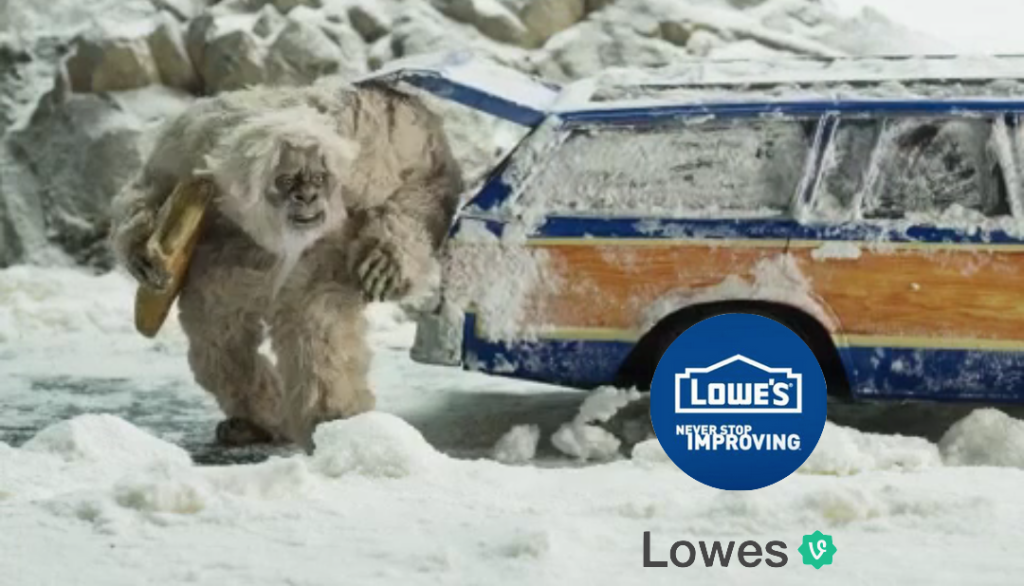
The Motionless Capture of Humans in Motion Award
Winner: The Mannequin Challenge
If you look up the Mannequin Challenge online it’s defined as “a viral internet video trend where people remain frozen in action like mannequins while a moving camera films them, usually with the song ‘Black Beatles’ playing in the background”. This movement is believed to have been started by some students in Florida in mid-October and took hold in the latter part of the year.
Like all great viral sensations, it adorned a hashtag—#mannequinchallenge. And it really caught on once professional athletes and sports teams started posting increasingly complex and elaborate videos. While it’s not a specific marketing effort per se, it was a movement that sparked interest, engagement and creativity from both individuals and brands alike. That’s a pretty awesome thing to behold.
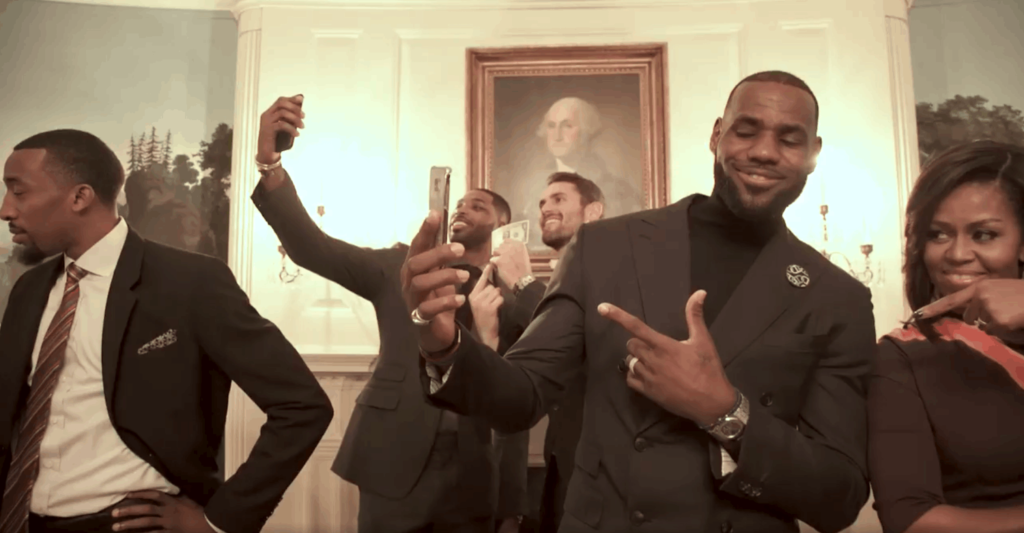
The Dead-On Down and Dirty Marketing That Brought All the Kids to the Pool Award
Winner: Deadpool
Deadpool’s marketing campaign perfectly echoed and reflected the film’s content. The movie was dirty, playful and over-the-top, and the marketing was too. The team behind this campaign wasn’t afraid of going too big or too far. So we got a pic of Deadpool posing on a bearskin rug; an email newsletter directly from Deadpool; a billboard featuring emojis of a skull, pile of poo, and the letter “L” (get it: dead-poo-l); a custom set of Deadpool emojis; a social media “feud” between Deadpool and Wolverine; Deadpool even created a Tinder profile.
It was funny, risky, and highly successful. Despite the fact that people weren’t all that familiar with the Deadpool character (outside of comic-book fans) and the movie was made for only $58 (chump change for a superhero movie), Deadpool delivered a $135 million opening weekend in the U.S. on its way to a $363 million domestic gross. The marketing contributed greatly to that big opening.
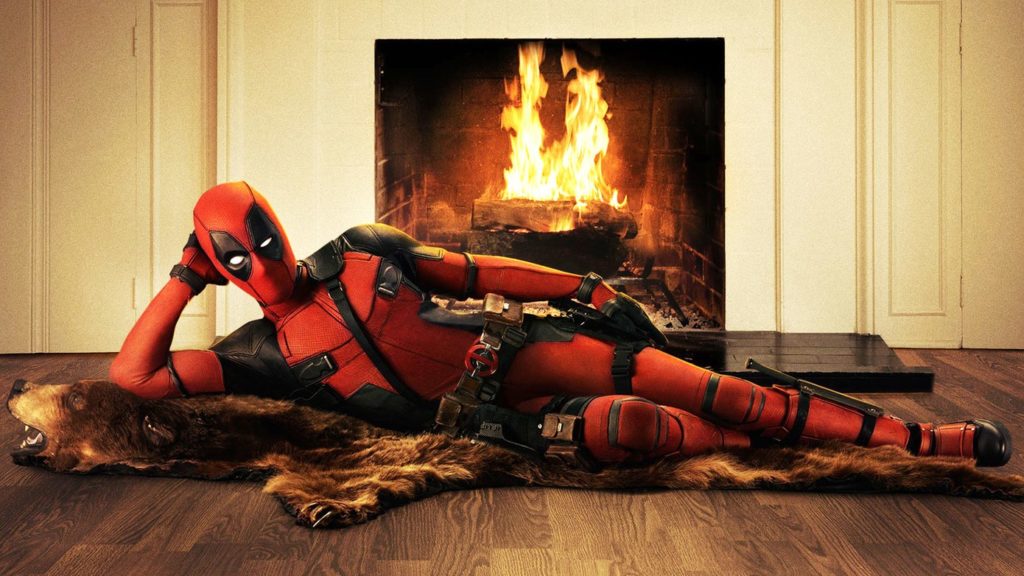
The Space Race with Universal Marketing Appeal Award
Winners: SpaceX & Blue Origin
SpaceX is the product of Elon Musk, the founder of Tesla. Blue Origin comes to us from Jeff Bezos, the founder of Amazon. Both these companies are working to bring sci-fi premises to life. SpaceX is working toward the ultimate goal of enabling people to live on other planets. Blue Origin is mainly a space transportation company. What’s fascinating is the way these companies are tied to their famous brand relatives: Tesla and Amazon.
As these companies are launching rockets into space, Tesla and Amazon are inherently getting some of the marketing benefit. Space exploration is filled with future glory and has a lot of much potential for providing positive overlap marketing to these big brands. So this award is for building an endless stream of future marketing appeal by investing in the future of humanity beyond what is currently thought possible.
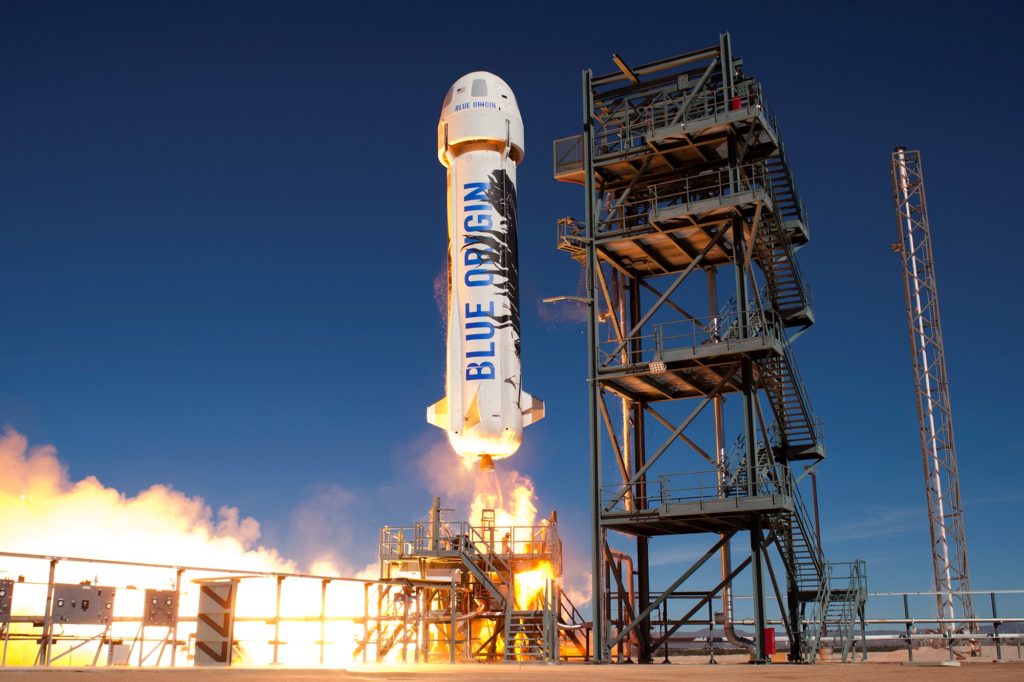
The Beneficiary of Unintentional Marketing Reminding Us of the Almighty Power of an Essential Element Award
Winner: Fire
Sorry, earth, wind and water, but 2016 belongs to fire. After years of being extinguished, fire came back with a vengeance in 2016. First, in late 2015/early 2016 we saw hoverboards—a popular Christmas gift—spontaneously bursting into flames. Then in September, we saw one of the most expensive and highly anticipated smartphones of the year, the Samsung Galaxy Note 7, bursting into flames.
Both of these products brought fear into the hearts of consumers and made a lot of trouble for the brands behind them. All the while, there was fire laughing in the background. The marketing message here is crystal clear: Fire is still going strong and should not be messed with. Not since the release of the movie Backdraft in 1991 has fire had a higher profile than it did this year. Burn, baby, burn.
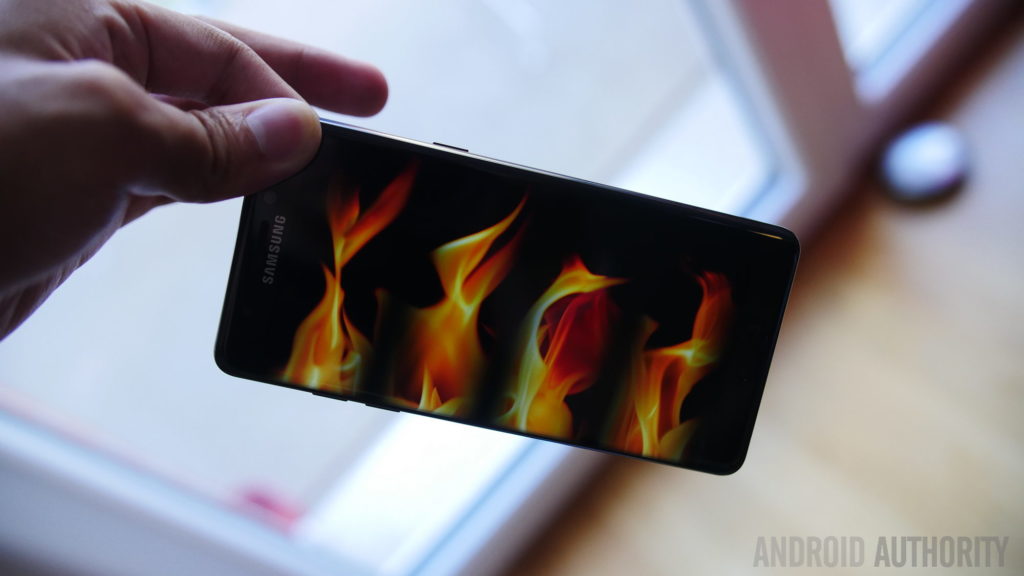
The Alexa, Siri, Hey Google, Oh My! Award
Winner: Artificial Intelligence
Artificial intelligence (AI) has been circling us all of 2016, ready to pounce into our lives like lions on a gazelle. Maybe that’s a little scary, but many believe AI is a little scary. Still, that didn’t stop humans from buying up automated assistants like crazy during the holiday season. Google Home and Amazon Echo sold in big numbers, privacy consequences be damned—which used to be the major marketing concern for many of the companies advancing in this technology.
In addition to the continuing AI evolution from Apple, Google and Amazon, 2016 saw Facebook’s Mark Zuckerberg come out with what he refers to as “Jarvis”, a personal assistant that is taking shape to be what some would call AI. Our prediction: 2016 is the baby child of 2017, which we’ll look back on in 100 years as the true birth year of artificial intelligence.
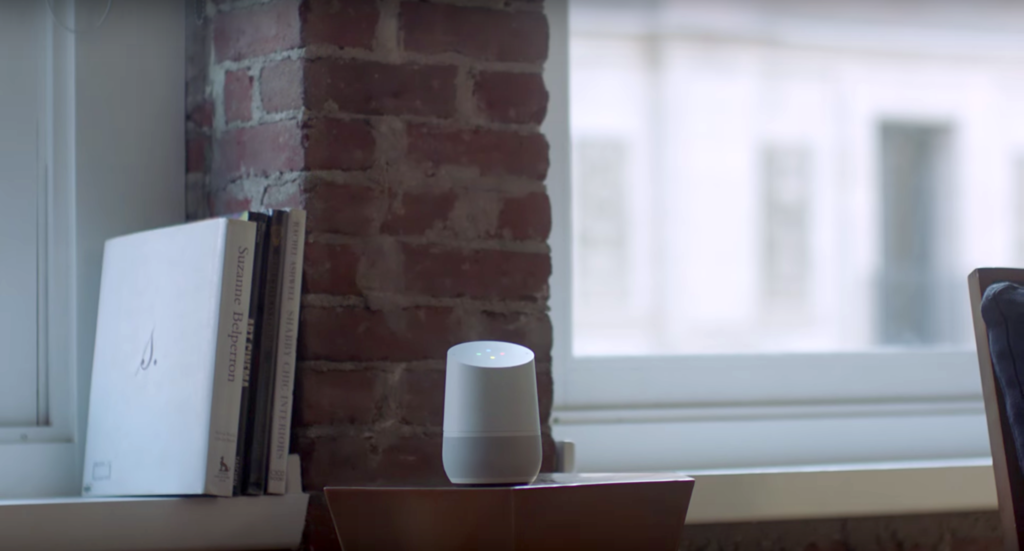
![]()
Hear more thoughts on our 2016 Awesome Award winners. Listen to the podcast…
![]()

